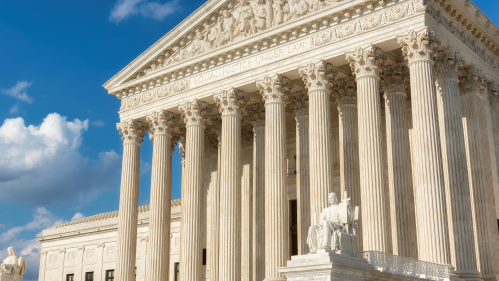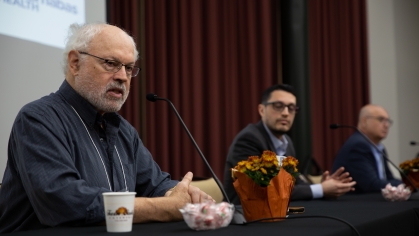U.S. Supreme Court Ruling Leads to Access Issues for Reproductive Care

Rutgers Health researchers publish evidence-based study detailing consequences of the Dobbs decision
While the U.S. Supreme Court’s Dobbs v. Jackson Women's Health Organization decision in 2022 allowed states to limit or ban abortion access, its effects have included many Americans losing access to non-abortion reproductive services such as in vitro fertilization (IVF), family planning and other reproductive health services, according to Rutgers Health and University of Oklahoma researchers.
The study, published in the journal Frontiers in Public Health, is considered one of the first evidence-based policy brief to detail the non-abortion health services consequences of the ruling.
The researchers show how abortion bans in 13 states that were enacted following the U.S. Supreme Court decision created new inequities in access to other non-abortion reproductive care, particularly IVF and family planning.
“This paper provides early rigorous, peer-reviewed evidence showing that the consequences of overturning of Roe v. Wade are not limited to abortion access but influence health care more broadly,” said Perry N. Halkitis, dean of the Rutgers School of Public Health and senior author of the study. “Because of the Dobbs decision, people across the nation have lost access to several types of non-abortion reproductive health care.”
The research study effectively foresaw the February 15 ruling by the Alabama Supreme Court that embryos created through IVF are considered children under state law, prompting multiple IVF practices in the state and around the nation to suspend their practices while legislation seeks to clarify the legal implications.
“Many people have to go through multiple rounds of IVF in order to have a baby, and it is already extremely costly and in short supply,” Halkitis said. “Notably, the loss of these health care services takes away the constitutional procreation rights of various populations, including LGBTQ+ people who want to have children, single people who want children and others.”
The second spillover effect from the U.S. Supreme Court’s abortion ruling is its negative influence on clinics and programs that provide basic family planning services, such as contraceptives and prenatal wellness care, particularly to people with low incomes, through the U.S. Department of Health and Human Services’ Title X family planning program.
Even though Title X funds can’t be used for abortion care, several states’ abortion ban laws go a step further by stating that health care providers can’t refer patients to an abortion clinic or talk to them about abortion, even if patients request such a consultation. In 2021, the Biden administration created a rule stating that Title X funding recipients must meet patients’ requests if they ask for an abortion referral or consultation; otherwise, the programs will no longer qualify for Title X funding.
“Since Roe v. Wade was overturned in June 2022 and until February 2023, about 1,000 Title X entities across the nation have lost federal funding,” said Junying “June” Zhao, an assistant professor of health administration and policy at the Hudson College of Public Health at the University of Oklahoma and first author of the study.
Oklahoma was among the states that lost Title X funding because of its abortion laws, including a family planning grant provided to the Oklahoma State Department of Health that had been in place for more than 40 years. In November, Oklahoma Attorney General Gentner Drummond sued the U.S. Department of Health and Human Services after losing the funding.
“Our research shows that this loss of access to Title X–funded programs is the result of the federal executive and judicial branches fighting with each other through states’ legislative mechanisms,” Zhao said. “The loss of funding in a particular state is not an isolated event. This perspective contributes to academia and the general public’s understanding. We can see the holistic picture of the issue at the interplay between the United States’ unique division of powers and federalism structure.”
“The Dobbs decision has deeply impacted the health of LGBTQ+ people and populations, with growing concerns that what limited health care is available will lose its funding,” Halkitis said. “We must ensure reproductive health care access for all, especially the most vulnerable.”



